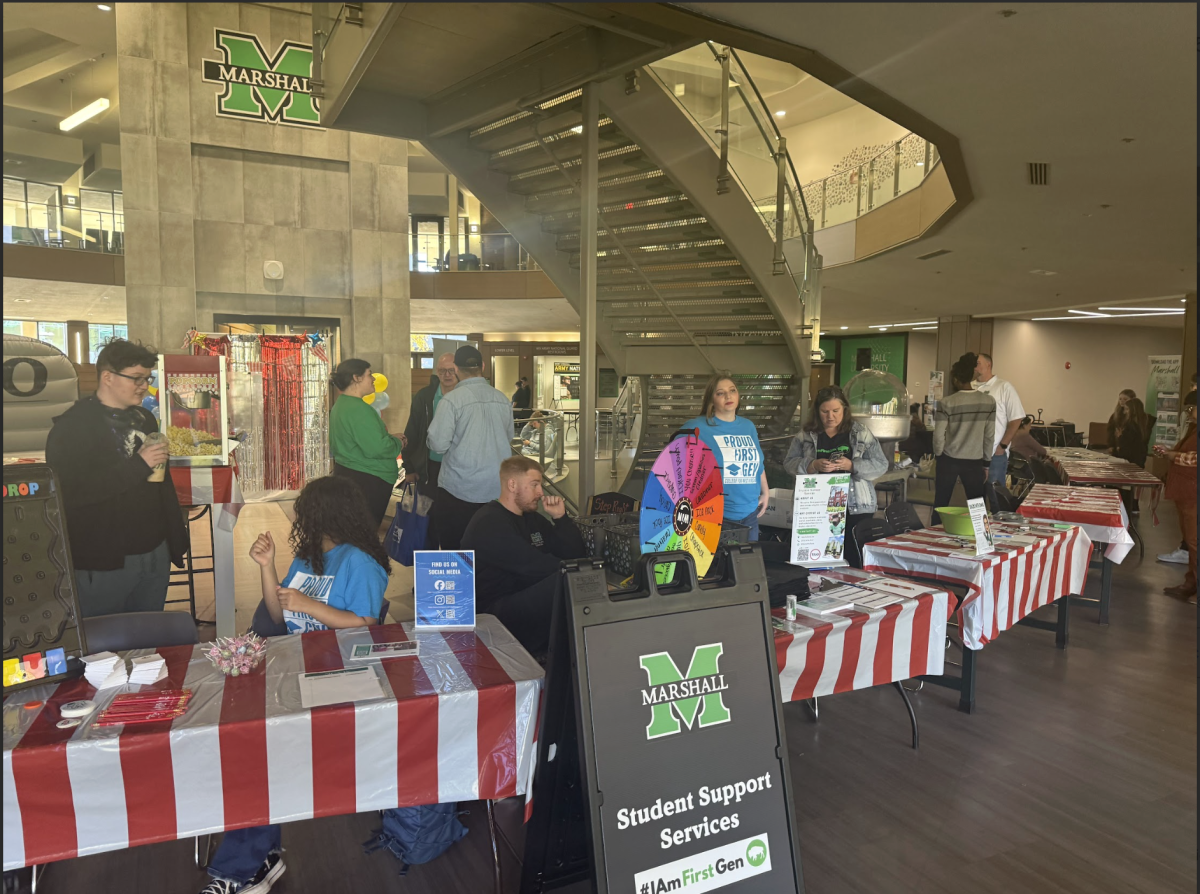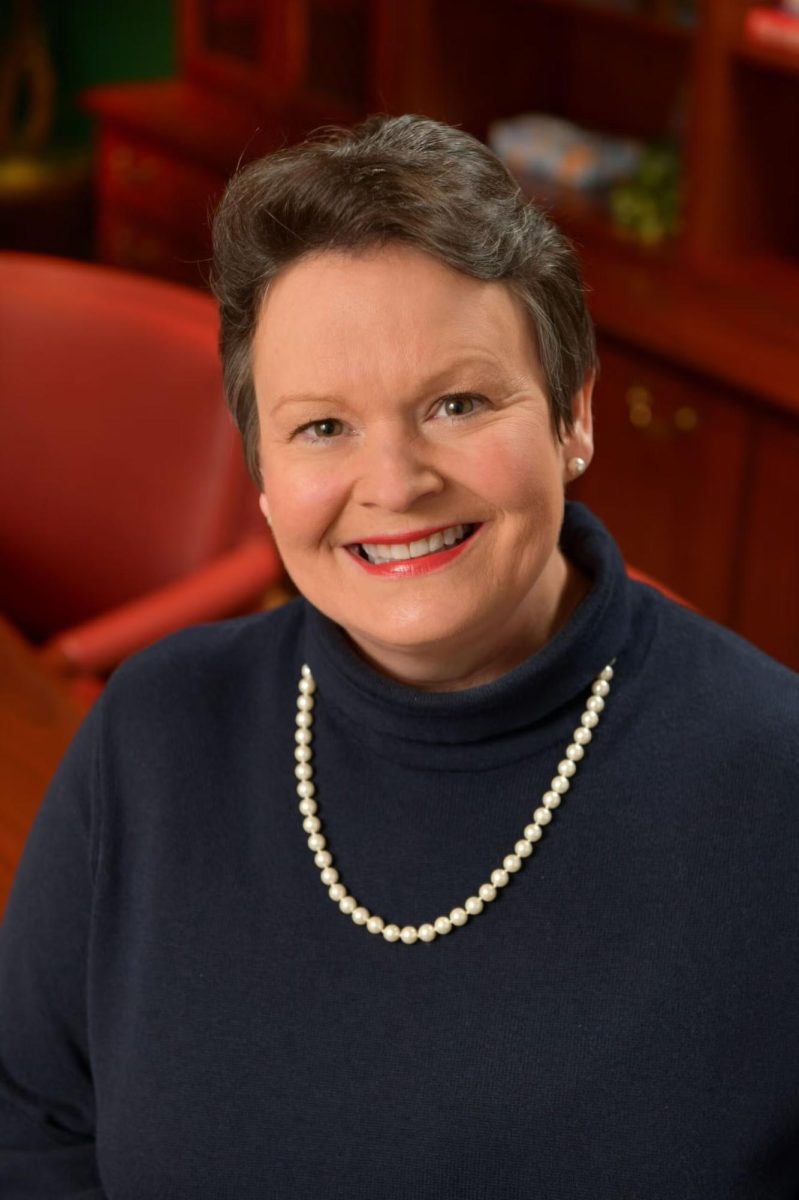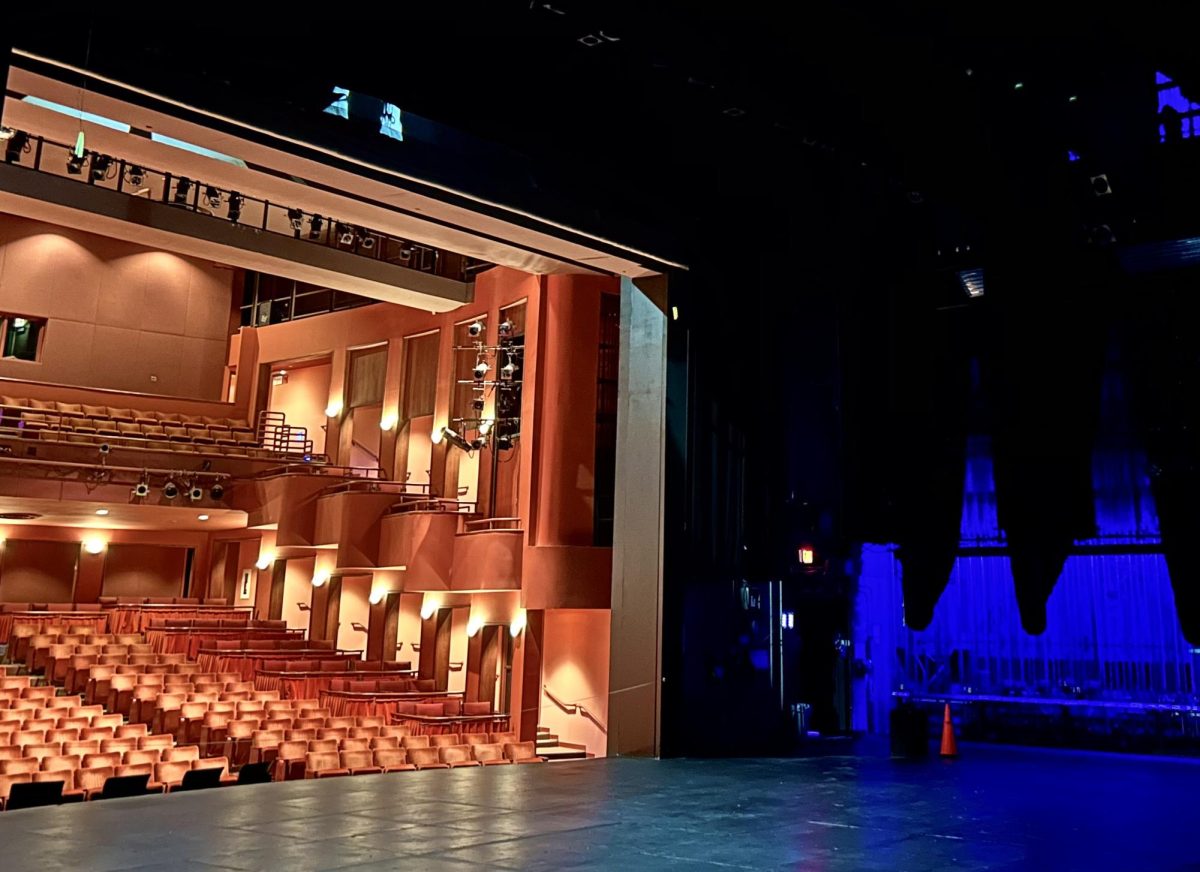Marshall University’s esports program has officially leveled up with the opening of a brand-new esports lab inside Drinko Library moving out of its former home in the student center.
The new space, referred to as the Thunderdome, reflects both the rapid growth of the program and the university’s commitment to providing students with more opportunities in competitive gaming and related fields.
Kyle Trapp, the director of esports and club sports, said the move was prompted by a surge in student interest that quickly outgrew the old facility.
“When I got here, we had some very active club members, and then we were trying to get teams off the ground,” Trapp said. “We started picking up traction with Call of Duty when we went varsity last spring; that really pushed things forward. At that point, we needed a bigger, more visible space.”
The new lab was designed with two goals in mind: accessibility and visibility. Open 24/7, it serves as a secure and monitored environment where students can play, practice, study or even stream their classes online.
“The vision is to make sure it’s a space students always feel comfortable in,” Trapp said. “It’s just another safe designated space on campus that students have access to at all times.”
Relocating the lab in Drinko Library also connects esports to the broader campus community. Students can easily move between the lab and nearby study areas, while the program itself gains more visibility outside the confines of the student center basement.
“People interested in participating in the esports program have access to a much larger and easier to find location,” said Remi Cook, the gaming club vice president. “Having a dedicated space for esports helps the really dedicated players find their niche and hone their skills.”
Trapp said future plans for the space include branching into new competitive areas such as iRacing, with hopes of entering collegiate E-NASCAR leagues.
The upgraded lab comes with state-of-the-art technology. Students now have access to six brand-new 5060 Ti PCs, twelve high-speed monitors donated to the program and a fully integrated broadcast studio.
“Before, we were running out of the TV studio across campus, which was great, but having everything in one place is a game-changer for us,” Trapp said.
The new space isn’t just attracting dedicated esports athletes. Students use the facility for everything from taking online classes to casual play, and Trapp says the feedback so far has been overwhelmingly positive.
Marshall’s esports program has grown dramatically in just a few years. What started with eight players has now expanded to over 40 students. New game titles are being added to keep pace with student interest, including Fortnite, League of Legends and Rocket League, with more on the horizon.
“The games offered by the esports program reflect the appetite that college-age players have for competitive games that don’t lose the premise of what makes the game fun in the first place,” Cook said.
Trapp believes the lab helps build community by drawing students out of their dorms and into shared activities.
Long-term, Trapp has his eyes set on bigger achievements.
“I’d love to bring home a national championship while I’m here,” he said. “But it’s also about offering something new for students, whether that’s competing, pursuing a degree or going pro.”
The program is already collaborating with other departments to explore esports-related coursework in broadcasting, business and analytics, with the possibility of an esports minor or even a full degree program in the future.
“It’s a rapidly growing field, and I can see it being as big as our course offerings regarding sports management and media,” Cook said.
Marshall esports is also making its mark beyond competition. This fall, the university will host a PlayStation Concert Series event Nov. 4 at the Joan C. Edwards Playhouse, featuring music from popular games like God of War, The Last of Us and Horizon: Zero Dawn.
Ella Hatfield can be contacted at hatfield325@marshall.edu.














